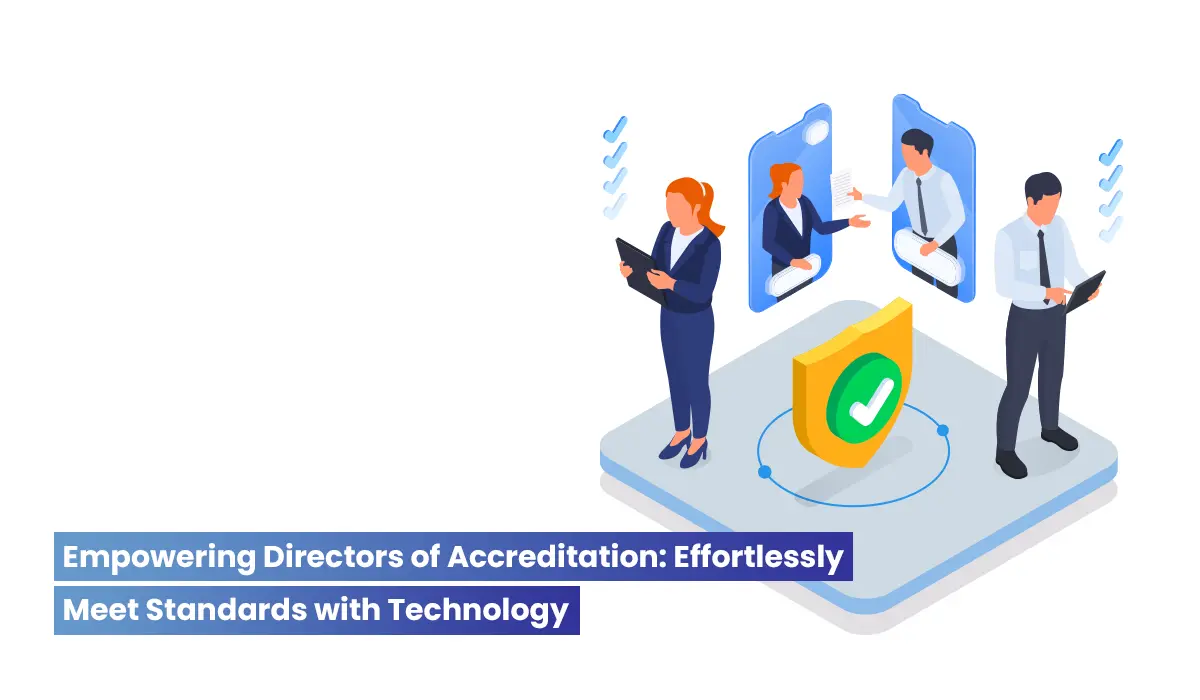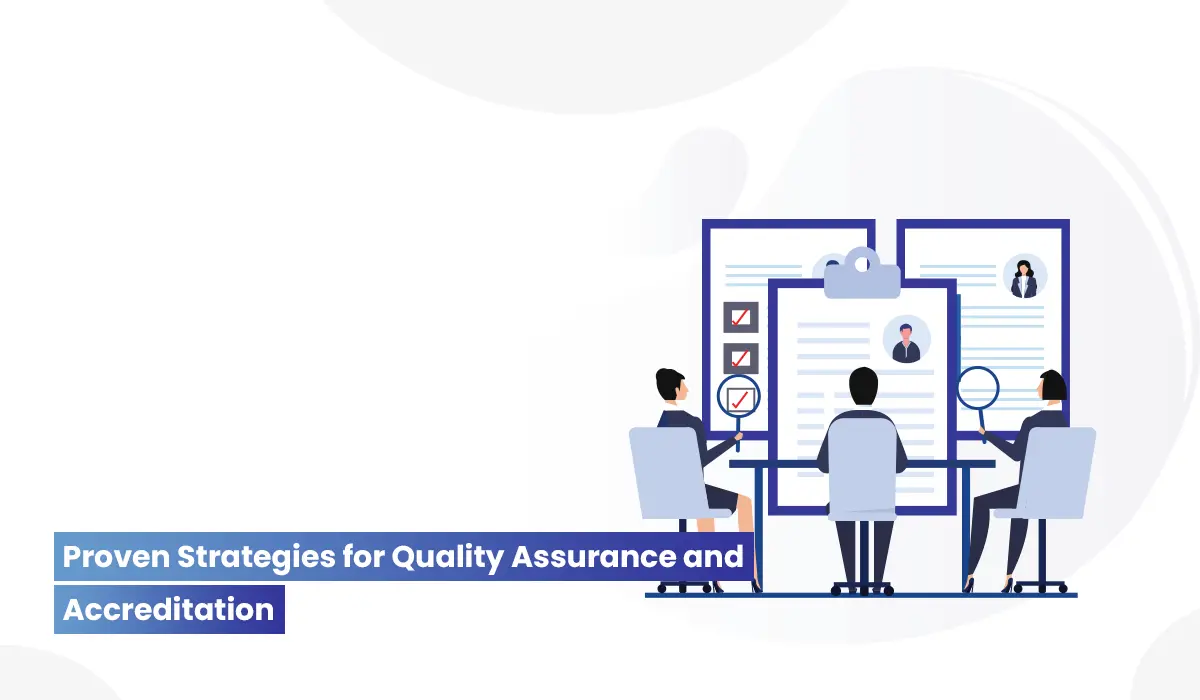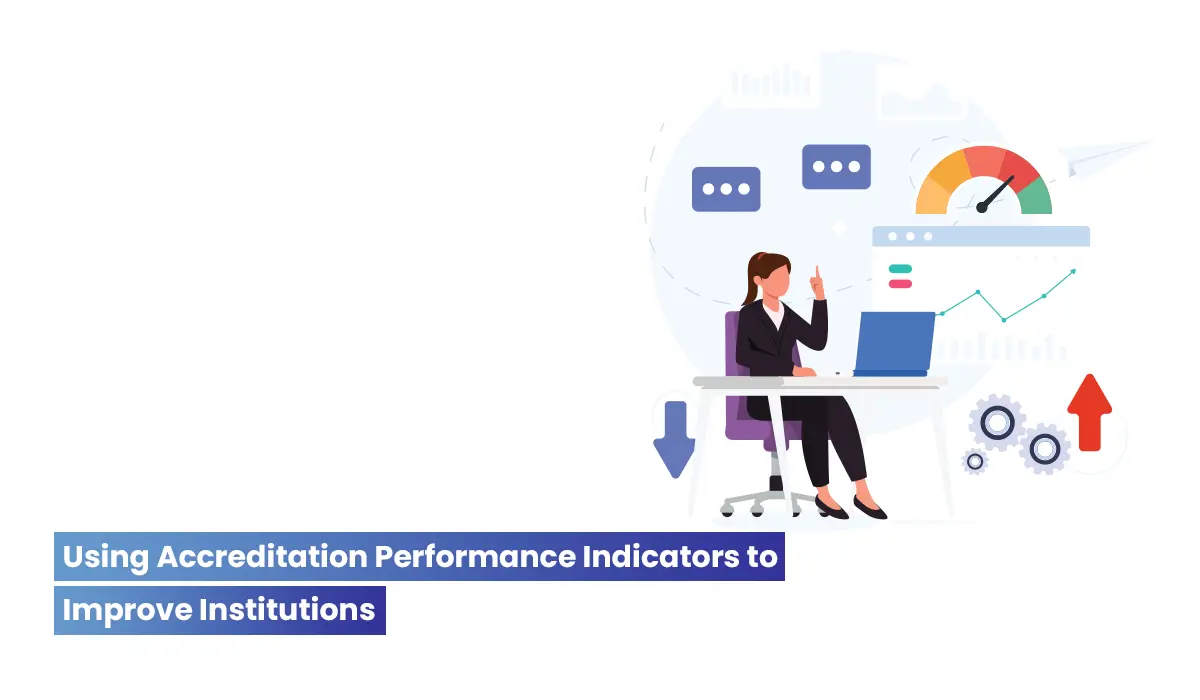The role of CPE in protecting the rights and interests of international students studying in Singapore
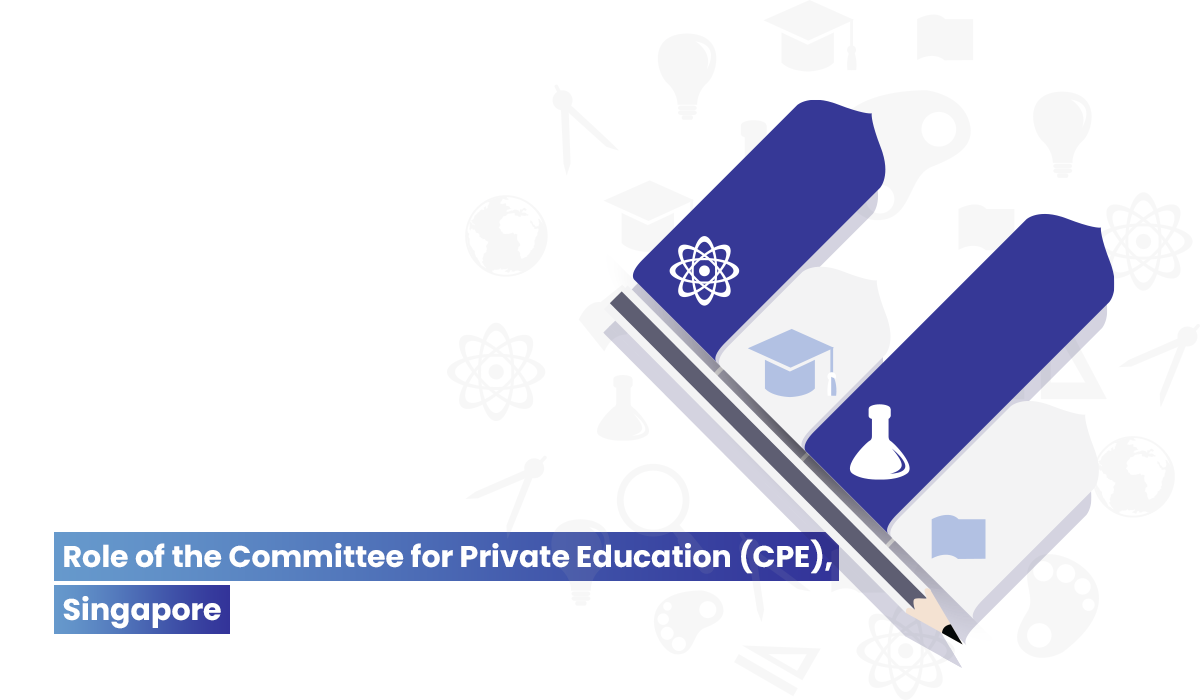
International students are an integral part of Singapore's vibrant and diverse higher education landscape. They bring with them unique perspectives, experiences, and aspirations that enrich the academic and cultural environment of our institutions. However, studying in a foreign country can also pose challenges and risks, especially in relation to the quality and credibility of the education provided. To protect the rights and interests of international students, Singapore's Committee for Private Education (CPE) plays a crucial role in regulating private education institutions (PEIs) and ensuring that they maintain high-quality standards.
In this blog post, we will explore the role of CPE in protecting the rights and interests of international students studying in Singapore. We will examine CPE's regulatory framework, guidelines for fair practices and transparency, and assistance and support for students affected by institutional closure. We will also look at the success and challenges of CPE's regulatory framework and provide recommendations for its improvement.
CPE meaning and its importance in Singapore's higher education system?
CPE stands for the Committee for Private Education. It is a regulatory body established in Singapore to regulate the private education sector and ensure that private education institutions (PEIs) maintain high standards of quality and credibility.
The CPE operates under the Council for Private Education (CPE), a statutory board under the Ministry of Education.
The CPE plays a crucial role in Singapore's higher education system by safeguarding the interests of students, ensuring that they receive a quality education, and protecting the reputation of Singapore's private education sector. The CPE regulates and oversees more than 400 PEIs in Singapore, including schools offering diploma, degree, and post-graduate programs. The CPE's role is to ensure that PEIs meet certain standards and comply with regulations related to their registration, course quality, marketing, student protection, and academic governance.
In addition to regulating PEIs, the CPE also provides information and assistance to students, including guidance on course options, complaints handling, and dispute resolution. This helps to promote transparency, accountability, and fair practices in the private education sector and ensures that students have access to quality education that meets their needs and aspirations.
Background and history of CPE
The Committee for Private Education (CPE) was established in Singapore in 2009 under the Private Education Act. The Act was introduced to provide a regulatory framework for the private education sector and ensure that students receive quality education and protection against malpractices by private education institutions (PEIs).
Since its establishment, the CPE has undergone several developments and milestones to enhance its regulatory framework and strengthen its role in regulating Singapore's private education sector.
Some of the key milestones and developments include:

In 2010, the CPE or the council for private education introduced the Enhanced Registration Framework (ERF) to improve the registration and quality assurance of PEIs. Under the ERF, PEIs are required to meet certain standards related to their curriculum, facilities, academic staff, and management systems.
In 2011, the CPE launched the EduTrust certification scheme to recognize PEIs that have achieved high standards of quality and credibility. EduTrust certification is mandatory for PEIs that wish to offer fee protection and medical insurance to international students.
In 2016, the CPE Singapore introduced the Private Education Sector (PES) framework to streamline the regulatory requirements for PEIs and improve their quality assurance processes. The PES framework comprises three categories of PEIs based on their track record and quality assurance processes.
CPE's regulations and standards for Private Education Institutions (PEIs)
The Committee for Private Education (CPE) sets out several regulations and standards that private education institutions (PEIs) must meet to operate in Singapore. These regulations and standards ensure that PEIs provide quality education and maintain high standards of professionalism and conduct.
Requirements for PEIs to operate in Singapore
- PEIs must be registered with the CPE and obtain a valid certificate of registration to operate in Singapore.
- PEIs must comply with the provisions of the Private Education Act and the regulations made under it.
- PEIs must have a physical presence in Singapore, such as a campus or office.
- PEIs must not engage in any activity that is detrimental to Singapore's national interests or public order.
Criteria for registration and renewal of registration
- PEIs must have a sound financial position and be able to operate sustainably.
- PEIs must have a satisfactory track record of compliance with regulations and quality standards.
- PEIs must have competent and qualified academic staff who meet the minimum requirements for teaching, research, and assessment.
- PEIs must have appropriate infrastructure, facilities, and resources to support their educational activities.
- PEIs must have effective management and governance systems to ensure that they operate ethically and professionally.
Maintenance of minimum quality standards
- PEIs must maintain minimum standards for their courses and programs, including curriculum design, delivery, and assessment.
- PEIs must maintain minimum standards for their facilities, equipment, and resources, including libraries, laboratories, and IT infrastructure.
- PEIs must ensure that their academic staff is competent and qualified to deliver their courses and programs.
- PEIs must have effective systems for quality assurance, including student feedback, assessment and evaluation, and internal and external audits.
- PEIs must provide accurate and up-to-date information to their students, including course details, fees, and refund policies.
- PEIs that fail to meet these regulations and standards may face penalties, including suspension or revocation of their registration, fines, or prosecution. The CPE regularly monitors and evaluates PEIs to ensure that they maintain high standards of quality and professionalism.
CPE's role in protecting the rights and interests of international students
The CPE's role in regulating Singapore's private education sector is multifaceted. It is responsible for registering and accrediting PEIs, monitoring their compliance with regulations and quality standards, and enforcing penalties for non-compliance.

Guidelines for fair practices and transparency
- PEIs must provide accurate and transparent information about their courses, fees, and admission requirements to prospective students.
- PEIs must have fair and transparent policies and procedures for assessing and admitting students and for awarding qualifications.
- PEIs must provide timely and accurate information to students about their progress and performance, and about any changes to their courses or programs.
- PEIs must have fair and transparent policies for handling complaints and disputes, and for providing remedies to affected students.
The diagram below highlights the nine key areas of CPE's Guidelines for Fair Practices and Transparency, which aim to ensure that PEIs in Singapore operate in a fair, transparent, and student-centered manner.
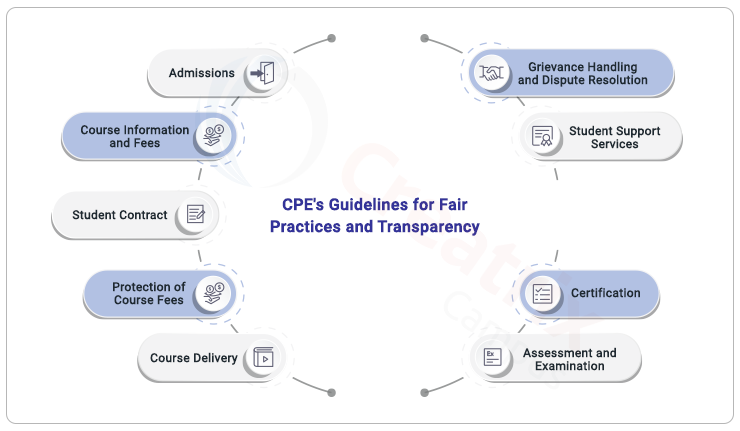
Complaints and feedback mechanism
- The CPE Singapore has established a complaints and feedback mechanism for students who have grievances against their PEIs.
- Students can submit complaints to the CPE through an online portal or by email, phone, or in person.
- The CPE will investigate complaints and work with PEIs to resolve them in a timely and satisfactory manner.
- The CPE also maintains a list of licensed PEIs and provides information about their performance and quality ratings, which students can use to make informed decisions.
This diagram highlights the five steps of CPE's Complaints and Feedback Mechanism, which ensures that complaints regarding PEIs in Singapore are handled fairly and effectively.
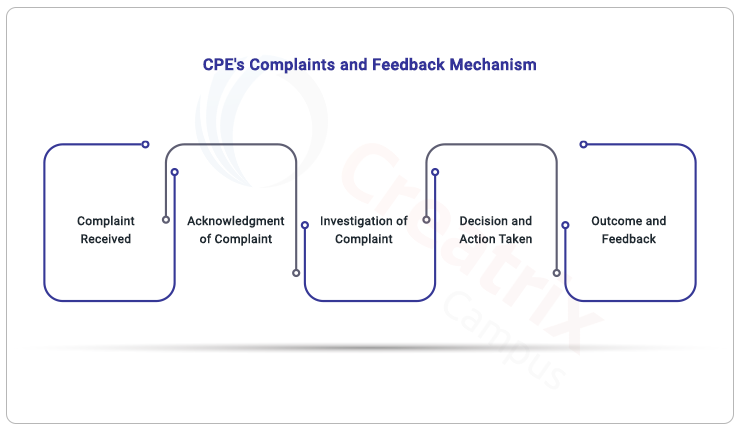
Assistance and support for students affected by institutional closure
- The CPE provides assistance and support to students who are affected by the closure of their PEIs.
- The CPE requires PEIs to have contingency plans in place to manage the impact of the closure on their students and to provide them with appropriate assistance and support.
- The CPE works with PEIs to ensure that students are able to complete their courses or transfer to other institutions without undue hardship.
- The CPE Singapore also maintains a fund to provide financial assistance to students who are unable to complete their courses due to institutional closure.
The diagram below highlights the various forms of assistance and support that CPE provides to students, as well as the expectations that CPE has for PEIs in Singapore to prioritize the well-being and success of their students.
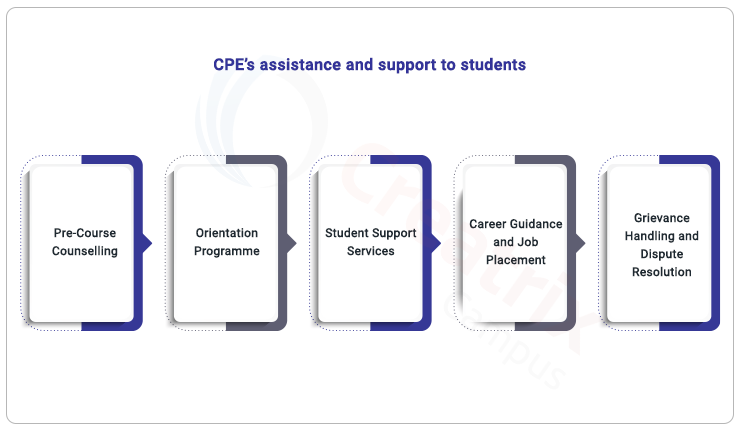
Success and challenges of CPE's regulatory framework
The regulatory framework established by the Committee for Private Education (CPE) in Singapore has produced both positive outcomes for international students and private education institutions (PEIs), as well as challenges for the CPE in enforcing regulations.
Positive outcomes for international students and PEIs
- The regulatory framework has helped to improve the quality of education provided by PEIs, which has led to better outcomes for students.
- International students are now better protected from unscrupulous PEIs that engage in unfair practices, as the CPE's regulations and guidelines ensure that PEIs operate with transparency and fairness.
- The CPE's licensing and registration requirements have helped to weed out low-quality or fraudulent PEIs, which has boosted the reputation of Singapore's private education sector.
- The CPE's complaints and feedback mechanism has provided a channel for students to voice their grievances and obtain redress, which has helped to improve the overall student experience.
Challenges faced by CPE in enforcing regulations
- The CPE faces challenges in ensuring that all PEIs comply with its regulations, as there are many PEIs operating in Singapore, and some may seek to evade or circumvent the regulations.
- The CPE has limited resources to monitor and enforce compliance with its regulations, which can make it difficult to detect non-compliant PEIs and take appropriate action.
- The CPE may face legal challenges from PEIs that feel that their rights or interests have been unfairly impacted by its regulations.
Efforts to enhance the regulatory framework
- The CPE has engaged in ongoing efforts to improve the regulatory framework, such as by conducting periodic reviews and consultations with stakeholders.
- The CPE has expanded its scope to cover a wider range of education providers and programs, such as those offered by online and overseas institutions.
- The CPE has introduced new initiatives to enhance the student experience, such as the EduTrust certification scheme, which recognizes PEIs that meet higher quality standards and provide better outcomes for students.
Conclusion - get help from Creatrix Campus Accreditation experts
The Committee for Private Education (CPE) in Singapore plays a critical role in protecting the rights and interests of international students studying in Singapore. The CPE has established regulations and standards for private education institutions (PEIs) to ensure that they operate with transparency and fairness and maintain minimum quality standards. The CPE also provides assistance and support for students affected by institutional closure and has established a complaints and feedback mechanism for students to voice their grievances and obtain redress.
Looking ahead, it is recommended that the CPE continues to enhance its regulatory framework by leveraging technology and data analytics to better monitor and detect non-compliant PEIs. The CPE can also work with international education regulators and stakeholders to establish global standards and best practices for the private education sector. Finally, the CPE can engage in greater collaboration with PEIs and students to better understand their needs and concerns, and establish a more proactive approach to regulating the private education sector in Singapore.
If you're interested in streamlining the accreditation process for your private education institution, contact Creatrix Campus today to learn more about our innovative accreditation software. With powerful tools for data management, document organization, and reporting, our software is designed to help you achieve accreditation from the Committee for Private Education (CPE) with ease and efficiency.
Don't let the accreditation process hold you back from achieving your goals for your private education institution. With Creatrix Campus Accreditation Software, you can simplify the process, save time and resources, and focus on providing your students with the best possible education. Contact us today to learn more and get started.
Disclaimer: Please note that Creatrix Campus is not an accreditation agency and does not provide accreditation. Our software is designed solely to streamline the accreditation process and improve efficiency for educational institutions seeking accreditation from the Committee for Private Education (CPE) in Singapore. We're proud to offer an innovative solution that simplifies the accreditation process and improves the efficiency of private education institutions seeking accreditation from CPE. However, it's important to note that the final decision regarding accreditation status rests solely with CPE.

